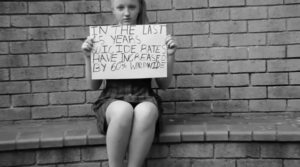| Hebrew (translation) | Source (English) |
|---|---|
לקריאה בשעת פתיחת הדלת לאליהו. |
To be read upon opening the door for Elijah. |
הלילה אנחנו מהרהרים באליהו הנביא. אנו חולמים על אליהו מבקר בשולחן הסדר שלנו, לא על מנת לסעוד, אלא על מנת לבשר על בואו של משיח בן דוד. |
Tonight we reflect on Eliyahu HaNavi, Elijah the Prophet. Tonight we dream of Elijah visiting our Seder; not to eat — but to serve as the precursor to the Messiah. |
בפסח, אנו מתפללים לימות המשיח – התקופה שבה כל האנושות תחיה בשלום; שלום גשמי ורוחני כאחד. אנו כמהים לשלום, כלפי חוץ וכלפי פנים. |
On Pesaḥ, we pray for the Messianic Age — a time when humanity will live in shalom, peace, that is not only physical, but also spiritual. We seek peace that is not only external, but spiritual as well. |
לפי אלפי שנים, אליהו חווה משבר. הוא התייסר מחלומות שלא התגשמו ומצפיות שהתנפצו. איזבל, אשת המלך אחאב, איימה עליו במיתה, ואליהו לא הצליח לדמיין עתיד בעבור עצמו. הוא חש בודד, גלמוד ומיואש. ביאושו, הוא זעק אל האלוהים “די! תן לי למות! לעולם לא אצליח להגשים את חלומותי ומטרותי. איזו סיבה יש לי לחיות?” |
Thousands of years ago, Elijah was in crisis. He was tormented by unfulfilled dreams and dashed expectations. Jezebel, wife of King Ahab threatened him with death and Elijah saw no future for himself. He was alone and lonely. He was in despair. And, he cried to God, “I have had enough — let me die! I have dreams, goals and values that I will never achieve. What reason is there for me to live?”[1] Cf. 1 Kings 19:4. |
לרוב האל נגלה אל בני האדם ברעידות אדמה, סופות ברקים ורוחות חזקות. אבל אל אליהו הוא דיבר בקול חלש. ובכל זאת, אותו קול קטן היה זה שלא לאט העניק לאליהו אומץ וכח להציץ החוצה מהתהום אליו נקלע. |
Although God often speaks to humanity in the rumble of earthquakes, the roaring of wind and the thunder of storms, God spoke to Elijah, instead, in a still small voice. And, it was the nurturing power of the still small voice that slowly gave Elijah the courage and strength to be able to peek out of his deep abyss.[2] Cf. 1 Kings 19:11-13. |
הלילה הזה, כשאנו מזמינים את אליהו להצטרף אלינו לשולחן החג, אנו נזכרים באלו שחשים כאב כה רב, עד שהשמחה חומקת מהם ואינם יכולים לחגוג בעצמם. למרות שאנו מסוגלים להבחין בקלות בפגיעות גופניות, עלינו למצוא את הדרך לשים לב גם לכאבי הנפש ושברון הלב. אלו פצעים שלעתים לא ניתן לראות, וזעקות שלעתים לא ניתן לשמוע, אבל הם שם ללא ספק. האתגר שעומד לפתחנו הינו לראות ולשמוע את כאבם של הסובלים מדכאון. |
On this night when we welcome Elijah to join our celebration, we acknowledge those who are so pained that they cannot fully celebrate, for joy eludes them. Although we may witness their physical wound with our eyes, we must also find ways to become attuned to their spiritual hurt and their emotional despair. The blood from the wound in their heart may not be visible and the cry in the depth of their throat may not be audible unless we train ourselves to attend to them. But, they are there. Our challenge is see and hear the pain of those whose depression affects their lives. |
התגובה שלנו לא חייבת להיות בולטת. קול קטן יכול להחזיר את החיוך לפנים. ללחוש “איכפת לי” יכול לרומם ראש שפוף. חיבוק חם יכול לספק נחמה גדולה לנשמה דואבת. |
Our response does not have to be bold in order to make a difference. A still small voice can transform a frown into a smile. A caring whisper that says, “I care” can raise a stooped head. A tender embrace can provide salve to a soul racked with pain. |
כיום בצפון אמריקה מספר מקרי המוות כתוצאה מהתאבדויות גדול ממספר מקרי המוות כתוצאה מתאונות דרכים. כל שנה מתים פי שניים יותר אנשים כתוצאה מהתאבדויות מאשר כתוצאה מרצח. זו אינה גיזרת גורל. כולנו יכולים לעזור. כולנו יכולים להיות הקול הקטן שאומר “אני כאן כדי להקשיב,” “אני כאן כדי לשבת איתך,” “את חשובה לי,” “איכפת לי ממך.” |
Today the number of suicides in North America is larger than the number of deaths resulting from automobile accidents. There are twice as many deaths resulting from suicide than homicide. But, it doesn’t have to be that way. You can help by being the still small voice that says, “I’m here to listen.” “I’m here to sit with you.” “You are important to me.” “I care about you.” |
קול קטן הציל את חייו של אליהו. הקול הקטן שלך עשוי להציל מישהו שאתה מכיר. |
A still small voice may have saved Elijah’s life. Your still, small voice may save the life of someone you know. |
— for those crafting their own prayerbooks and sharing the content of their practice











Comments, Corrections, and Queries